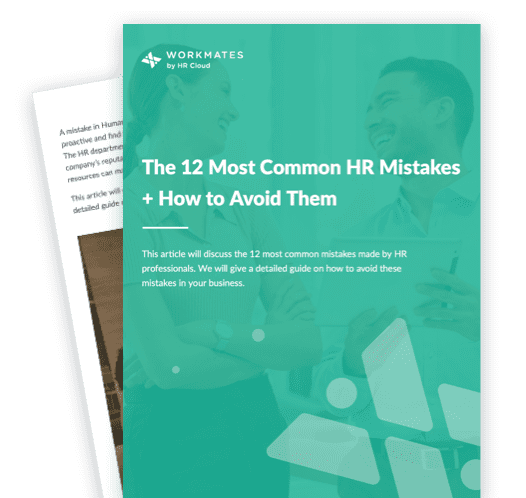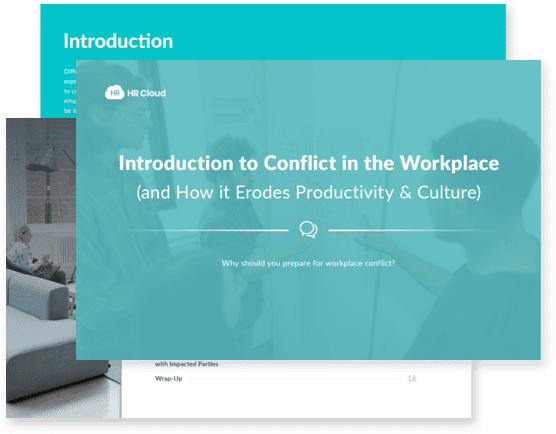Why Wellness Benefits Are Crucial for Employees Beyond COVID-19



 Cut onboarding time
by 60%—here's the
Ultimate Checklist
that helped do it.
Cut onboarding time
by 60%—here's the
Ultimate Checklist
that helped do it.

Wellness refers to being in a state of good health. This is often composed of multiple types of health, including both physical and mental. With companies, your employee wellness — their state of health in the workplace — is affected by factors both within and outside of work.
Balancing personal life and work-life has long been a subject of concern for many workers, but with remote work on the rise, there is a mentality shift to work-life integration. Work-life integration requires companies to offer flexible schedules and additional wellness benefits as part of their employee programs. These benefits are designed to improve overall wellness in life and bridge the gap between personal life and work life, which are so often treated as separate entities.
The idea is to improve a person’s overall health so every aspect of that person’s life can also benefit. For employers, the goal of implementing employee wellness programs is to have happier and healthier people, which can have the added benefit of positively impacting work performance. Though, the end goal should be to simply take care of the health of your fellow human beings.
According to a recent FinanceBuzz health and wellness benefits survey, 54% of surveyed workers with access to employer-sponsored wellness programs reported improved mental health in the last year. Compare this to workers without access to these programs, and only 22% said the same thing.
The data is significant, but what specific wellness benefits are most useful for employees and worth your consideration?
Types of wellness benefits
The FinanceBuzz survey mentioned above found a range of wellness benefits that were popular among employees. These included:
-
Healthy meal kit delivery
-
Mental health counseling
-
Gym membership reimbursements
-
Weight loss programs
-
Smoking cessation programs
-
Fitness tracker devices
-
Virtual workout subscriptions
-
Meditation or yoga membership/subscriptions
-
Reimbursements for smart home gym equipment
Many of these popular perks focus on ways to improve physical wellness, such as healthy eating or exercising. If a person feels better physically, it’s often easier to approach challenges and adjust to changes in life. This doesn’t mean a person no longer gets stressed out, but stress becomes more manageable.
However, it’s important to note that you have other options to promote workplace health and wellness. Mental health counseling and other benefits designed to help alleviate some of life’s worries can be invaluable for employees. This could include wellness benefits that focus on how to cope with financial stress.
According to a Mind Over Money Study from Capital One, 58% of Americans feel that finances control their life. Whether you know it or not, many of your employees are likely experiencing some sort of financial stress. This type of stress might wear on their mental health.
To help combat this stress, consider offering finance-related wellness benefits. Here are a few types of benefits you might want to think about:
-
A group life insurance plan that’s free or affordable for employees and doesn’t have strict requirements, such as passing a medical exam.
-
Health insurance coverage that aligns with your employees’ wants and needs. This could include more coverage options nationwide, low mental health counseling costs, and a variety of plans to choose from.
-
A 401(k) plan to help employees plan for retirement. It can be helpful to simply have access to a retirement plan, but the best employee benefits programs often include employer contributions. Seeing your company put money toward your financial future, other than your salary, can go a long way in fostering a caring and supportive environment. If you need help with creating these programs, reach out to employee benefits providers.
-
Flexible paid time off policies gives employees the time they need to recharge and reset. Burnout and mental exhaustion are real and all too common among the workforce, especially in the changing environment brought about by the coronavirus pandemic.
Wellness benefits and remote employees
In the past year, companies have found a need to review and revamp their employee wellness programs. In many cases, this was brought on by the massive changes resulting from the coronavirus pandemic. Specifically, millions of office employees became remote workers virtually overnight.
Certain wellness benefits, such as paid group lunches and in-person gym memberships, suddenly weren’t as relevant. But what wellness initiatives for remote employees are actually valuable?
Consider the unique challenges a remote worker faces. They have many of the same general stressors as office employees, such as worries about physical health, mental health, and financial wellbeing. So the wellness benefits mentioned above are useful, but there’s still room for extra help.
Remote workers often suffer from a sense of being disconnected, especially if they aren’t used to working remotely. A FinanceBuzz remote work survey found that 49% of remote workers found it harder to build relationships with co-workers, and 46% reported feeling isolated.
Wellness benefits for remote workers should focus on providing remote employees with opportunities for meaningful connections and conversations with other people. This could include wellness activities with co-workers and virtual meetings with health coaches or counselors.

HR mistakes impact your entire organization. Learn how to avoid the 12 most common mistakes with our free ebook.
Download nowA push for permanency
Reacting to a global pandemic may not be the most positive reason to introduce wellness benefits to your company, but it’s better than not having them at all. However, it’s important to continue advocating for adjustments to your employee wellness program even if things start to normalize worldwide as we enter a post-pandemic era.
The point of wellness benefits is to create a lasting positive impact on your employees and their lives. It would be challenging to make this kind of impression if the benefits were temporary and only available during the pandemic. That’s why it’s necessary to make helpful and valuable wellness benefits a permanent part of your business.
Some remote workers have already returned to the office, and others may be in the process of doing so. But that may not be the case for everyone. You or your company could still be managing a virtual team years down the road, many of whom would likely be grateful for employer-sponsored wellness benefits that positively affect their lives daily.
The bottom line
A quality benefits program isn’t just designed to make employees happier so that the business can make more money. Instead, these programs exist to make people happier and healthier so they can have more fulfilling lives. If your company grows and becomes more valuable as a result, that’s an added bonus.
Keep in mind that certain wellness benefits aren’t always the best options for each company. Each company is different and has employees with unique needs. If you want to find out what would work best for your company, get to know the people who work there.

Introduction to Conflict in the Workplace
(and How it Erodes Productivity & Culture)
About Author: Kris Osborne is a Marine Corps veteran turned startup veteran and global Chief of Staff. He enables companies to accelerate growth by putting culture and people first, currently working as the Chief of Staff for FinanceBuzz
Keep Reading
Why Healthcare Organizations Choose HR Cloud Over Alternatives
What is the Best Healthcare HR Software for Medical Organizations?
The Complete Guide to Remote Work Policy Compliance: Navigating Multi-State Tax, Legal, and Security Requirements in 2026
With 22.9% of US employees working remotely as of Q1 2024—up from 19.6% the previous year
Enterprise HRIS Implementation: Rippling vs HR Cloud Integration Capabilities and Deployment Success
Enterprise HR Software Implementation Comparison
Like What You Hear?
We'd love to chat with you more about how HR Cloud® can support your business's HR needs. Book Your Free Demo

Build a Culture of Recognition. Boost Engagement. Guaranteed.
Workmates empowers employees to stay informed, connected, and appreciated—whether they’re on the front line, in the office, or remote. Recognition drives 12x higher engagement.Trusted by industry leaders in every sector




Cut Onboarding Costs by 60%.
Take the confusion and follow-ups out of onboarding with automated workflows, digital forms, and structured portals—so new hires ramp faster 3X quicker.Trusted by industry leaders in every sector




